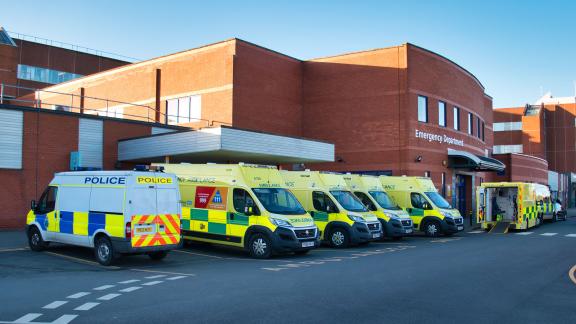We need to address the capacity gap to make real strides

Out today (Thursday 23 June), the latest NHS Wales monthly performance statistics show:
- Life threatening (red) calls to the ambulance service remained high, at 3,558 for the month of May
- Performance against ED wait targets improved slightly month on month, despite an increase in ED attendances, with a daily average of 2,937
- The rate of increase in patient pathways waiting to start treatment slowed, although the number remains high at 707,000
Responding on behalf of the Welsh NHS Confederation, director Darren Hughes said:
“The latest NHS Wales performance statistics show that demand on the health and care system remains extremely high and that the numbers of people attending emergency departments (EDs) have increased yet again.
“This comes alongside a high level of life threatening (red) calls to the ambulance service, showing demand coming through the ‘front door’ is relentless. Despite this, performance against ED waiting targets, including the average time spent in EDs, has improved slightly. This illustrates that staff across the health and care system continue to work exceptionally hard to innovate and deliver care in the face of continuing pressures.
“Although waiting lists continue to grow, the rate of growth is slowing month on month. Considering the impact of the pandemic, with patients coming forward at a later stage, there is a case for cautious optimism.
“However, in order to make real strides in planned care waiting times, including in diagnostics and therapies, we need to address the capacity gap across financial resilience, capital investment and workforce. The NHS is full of committed staff and leaders, but they cannot work miracles and are doing all they can with the resources they have, continuing to support current staff and attract new.
“What we don’t see in these statistics are the huge pressures across the whole system, on GPs, pharmacies, and other community services, as well as the number of patients unable to be discharged from hospital because of the ongoing pressures facing social care. Without long-term, sustainable investment in the social care sector, there is only so far the NHS can go in improving patient flow through hospitals and providing timely care."
ENDS


